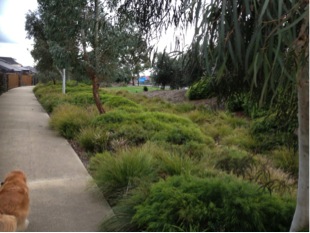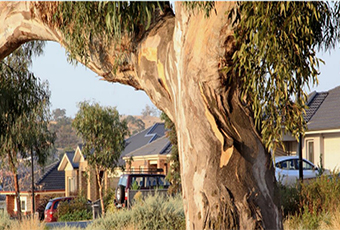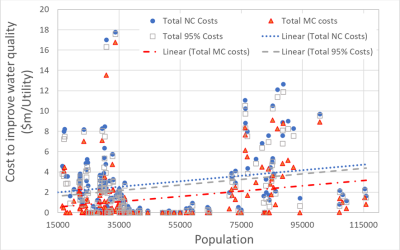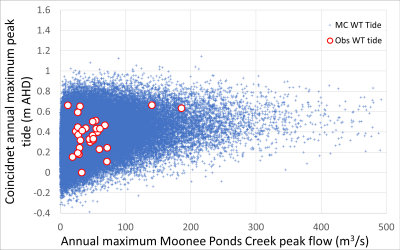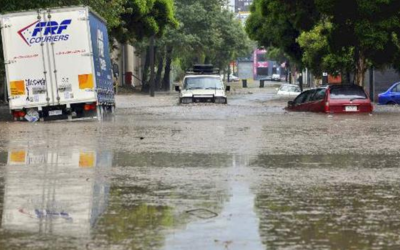Systems analysis and big data reveals economic efficiency of solutions at multiple scales
Presentation by Dr Peter Coombes, Dr Michael Barry and Michael Smit at OzWater 2018 at Room P1, 13:15 pm to 15:15 pm on Tuesday 8 May 2018 at Brisbane Convention and Exhibition Centre.
This study aimed to understand the effect of distributed local solutions, such as household water efficiency and rainwater harvesting, on the economic efficiency of urban water services in selected capital city regions. Changes in household expenses for utility water services, household welfare, historical marginal costs and utility water operating costs were characterised as describing economic efficiency.
Historical demographic, water resources and economic data was examined and included in systems analysis to investigate the water resources and economic value of distributed solutions for household water efficiency and rainwater harvesting in Australian capital city regions. A policy requirement that new and renovated dwellings meet water savings targets in Sydney has acted as an economic market mechanism to drive higher growth in household water savings of 48440 ML since 2007, lower water tariffs, improved household welfare and more economically efficient utility water services.
This investigation has shown that household water efficiency and rainwater harvesting – distributed solutions – provide benefits to households, water utilities, state governments and whole of society. These distributed approaches improve the economic efficiency of the entire urban system. These methods and insights have application to understanding the value of a wide range distributed or multiple scale solutions. The results in this investigation suggest that an opportunity of a new economy of solutions at multiple scales.

